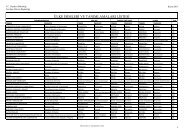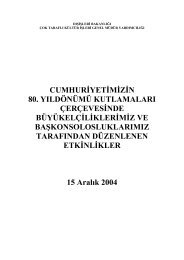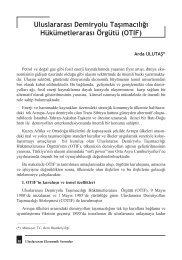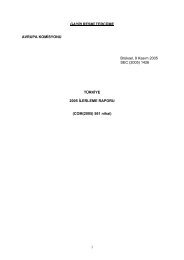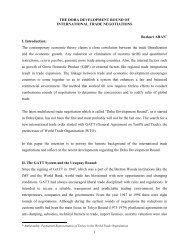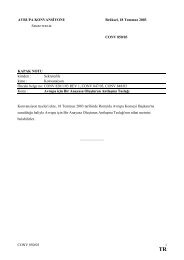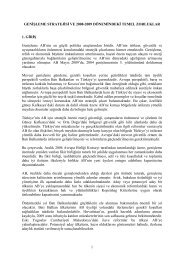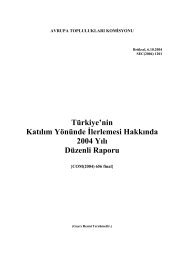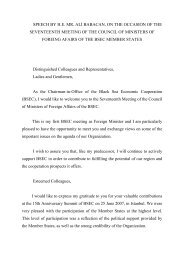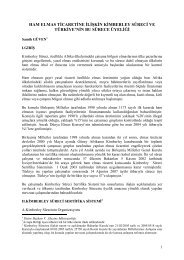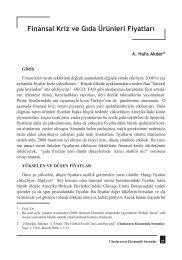ULUSLARARASI EKONOMİK SORUNLAR
ULUSLARARASI EKONOMİK SORUNLAR
ULUSLARARASI EKONOMİK SORUNLAR
Create successful ePaper yourself
Turn your PDF publications into a flip-book with our unique Google optimized e-Paper software.
N. Tolga TUNCER<br />
responsibility to align itself with the Common Customs Tariff and the preferential trade<br />
arrangements of the Community. 4<br />
It should be underlined that agricultural products were excluded from the customs<br />
union by stating that “an additional period is required to put in place the conditions<br />
necessary to achieve free movement of [agricultural products]” 5 Except the agricultural<br />
products, all other types of products are included in the customs union between Turkey<br />
and EU.<br />
2.2 Obligations Stemming From The Accession Process<br />
Turkey’s obligations in terms of trade policy stemming from the accession process<br />
are laid down in different documents. In general, however, Turkey’s obligations are<br />
summarised in the accession partnership document 2006/35/EC. According to that<br />
document, Turkey should not only abolish the remaining barriers in front of joining the<br />
single market, but fully harmonise its trade policy with the EU. It is stated within the<br />
short-term priorities that Turkey should complete alignment with EU trade policy. In<br />
addition, it is made clear that Turkey should “…progressively align policies toward<br />
third countries and positions within international organisations with those of the EU<br />
and its member states…”<br />
The last statement is of significant importance for our practical purpose. Aligning<br />
policies within the international organisations naturally includes positions in the WTO<br />
negotiations. Nevertheless, as we are going to see, Turkey and EU’s negotiating<br />
positions may not always coincide. In addition, a recent development which is especially<br />
important for our issue is that the statement mentioned has been adopted as an opening<br />
benchmark for the “external relations” chapter of the negotiations in the latest EU<br />
Council meeting in Brussels in December 2007.<br />
3. The Doha Round<br />
The Doha Round of Multilateral Trade Negotiations were launched in WTO in 2001<br />
and there is a “good will” by the major negotiating countries to finalise the Round<br />
within 2010. Like the earlier Uruguay Round, the Doha Round comprises the single<br />
undertaking principle. This means that the Members will not have the opportunity to<br />
opt out for any of the topics negotiated but rather will have to sign the all package of<br />
agreements in take it or leave fashion. This makes the balance between topic extremely<br />
4 The Association Council Decision 1/95 Article 13 &14<br />
5 The Association Council Decision 1/95 Article 24<br />
Uluslararası Ekonomik Sorunlar 21



